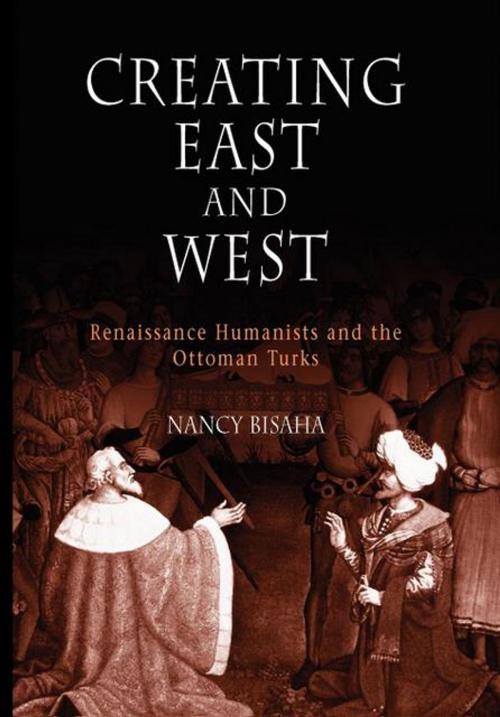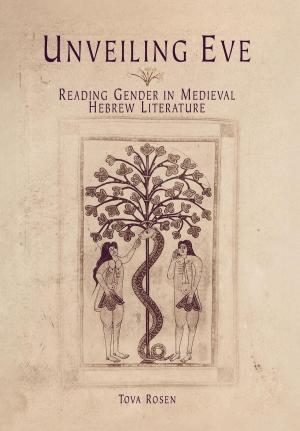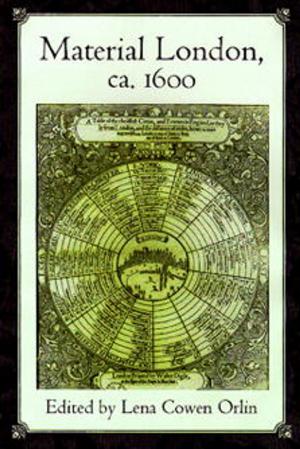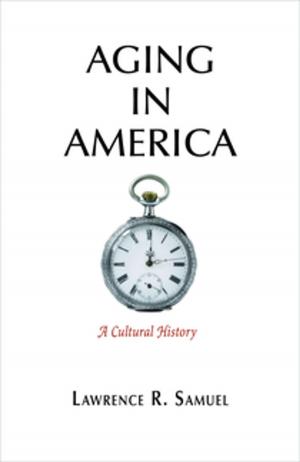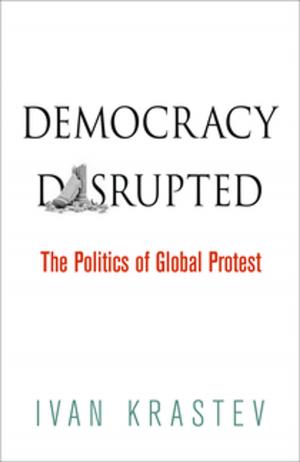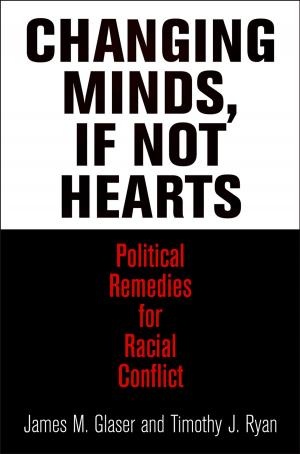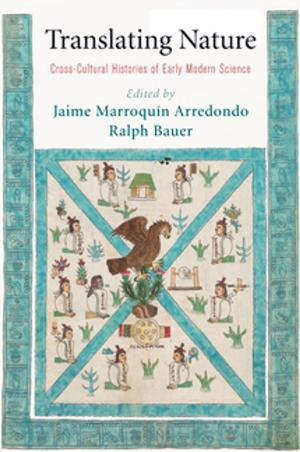Creating East and West
Renaissance Humanists and the Ottoman Turks
Nonfiction, History, Renaissance, Medieval, Social & Cultural Studies, Social Science| Author: | Nancy Bisaha | ISBN: | 9780812201291 |
| Publisher: | University of Pennsylvania Press, Inc. | Publication: | December 1, 2010 |
| Imprint: | University of Pennsylvania Press | Language: | English |
| Author: | Nancy Bisaha |
| ISBN: | 9780812201291 |
| Publisher: | University of Pennsylvania Press, Inc. |
| Publication: | December 1, 2010 |
| Imprint: | University of Pennsylvania Press |
| Language: | English |
As the Ottoman Empire advanced westward from the fourteenth to the sixteenth centuries, humanists responded on a grand scale, leaving behind a large body of fascinating yet understudied works. These compositions included Crusade orations and histories; ethnographic, historical, and religious studies of the Turks; epic poetry; and even tracts on converting the Turks to Christianity. Most scholars have seen this vast literature as atypical of Renaissance humanism. Nancy Bisaha now offers an in-depth look at the body of Renaissance humanist works that focus not on classical or contemporary Italian subjects but on the Ottoman Empire, Islam, and the Crusades. Throughout, Bisaha probes these texts to reveal the significant role Renaissance writers played in shaping Western views of self and other.
Medieval concepts of Islam were generally informed and constrained by religious attitudes and rhetoric in which Muslims were depicted as enemies of the faith. While humanist thinkers of the Renaissance did not move entirely beyond this stance, Creating East and West argues that their understanding was considerably more complex, in that it addressed secular and cultural issues, marking a watershed between the medieval and modern. Taking a close look at a number of texts, Bisaha expands current notions of Renaissance humanism and of the history of cross-cultural perceptions. Engaging both traditional methods of intellectual history and more recent methods of cross-cultural studies, she demonstrates that modern attitudes of Western societies toward other cultures emerged not during the later period of expansion and domination but rather as a defensive intellectual reaction to a sophisticated and threatening power to the East.
As the Ottoman Empire advanced westward from the fourteenth to the sixteenth centuries, humanists responded on a grand scale, leaving behind a large body of fascinating yet understudied works. These compositions included Crusade orations and histories; ethnographic, historical, and religious studies of the Turks; epic poetry; and even tracts on converting the Turks to Christianity. Most scholars have seen this vast literature as atypical of Renaissance humanism. Nancy Bisaha now offers an in-depth look at the body of Renaissance humanist works that focus not on classical or contemporary Italian subjects but on the Ottoman Empire, Islam, and the Crusades. Throughout, Bisaha probes these texts to reveal the significant role Renaissance writers played in shaping Western views of self and other.
Medieval concepts of Islam were generally informed and constrained by religious attitudes and rhetoric in which Muslims were depicted as enemies of the faith. While humanist thinkers of the Renaissance did not move entirely beyond this stance, Creating East and West argues that their understanding was considerably more complex, in that it addressed secular and cultural issues, marking a watershed between the medieval and modern. Taking a close look at a number of texts, Bisaha expands current notions of Renaissance humanism and of the history of cross-cultural perceptions. Engaging both traditional methods of intellectual history and more recent methods of cross-cultural studies, she demonstrates that modern attitudes of Western societies toward other cultures emerged not during the later period of expansion and domination but rather as a defensive intellectual reaction to a sophisticated and threatening power to the East.
